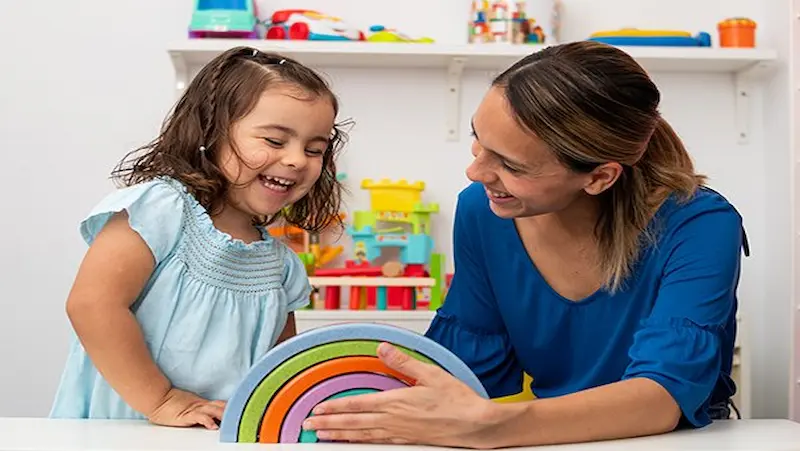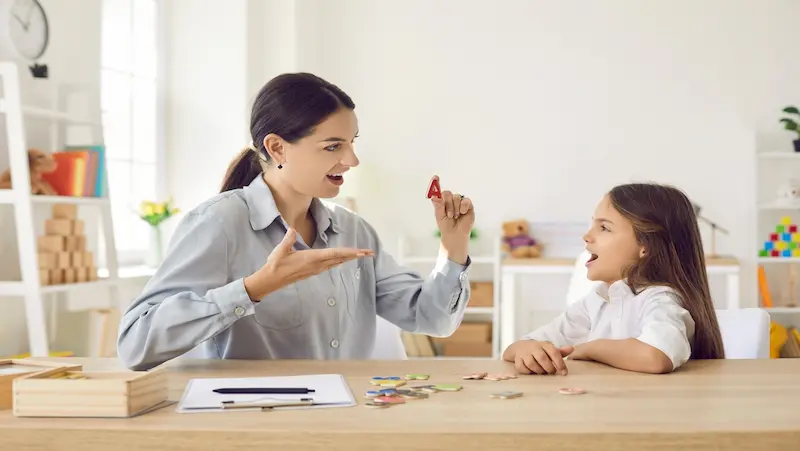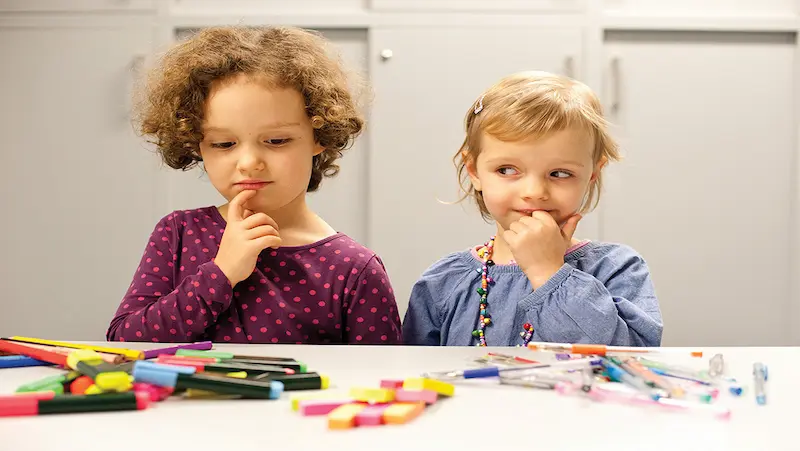Did you know that toddlers take an average of 9,000 steps a day? 😲That’s quite a feat for those little feet!
Just as their physical development is a journey of growth, so is their behavior. As parents, navigating the world of toddlerhood can be both rewarding and challenging. In this article, we’ll delve into expert strategies and tips that will help you master the art of toddler discipline while fostering a strong parent-child bond.
Table of contents
Introduction
One of the keys to unlocking effective parenting during this phase lies in effective toddler discipline. It’s not about suppressing their curiosity and energy, but rather guiding them toward becoming thoughtful, kind individuals.
Toddlers are like explorers in a vast universe of curiosity. As they take their first steps towards independence, they often showcase behaviors that might seem puzzling to adults. It’s essential to recognize that tantrums, defiance, and boundary-testing are all part of their developmental journey.
By understanding these typical behavior patterns, parents can approach discipline with empathy and patience. Remember, you’re the co-pilot in this exploration, helping your toddler navigate their emotions and surroundings.

Positive Parenting Approach
Positive parenting is a philosophy rooted in fostering a loving and nurturing relationship between parents and children. At its core, this approach emphasizes mutual respect, active listening, and clear communication. Unlike traditional authoritarian methods, positive parenting encourages collaboration and empowers children to understand the reasons behind rules and make choices while considering the consequences. By nurturing emotional intelligence, positive parenting equips children with vital life skills and values that extend far beyond childhood.
Benefits of Positive Parenting: Nurturing the Seeds of Well-being
The beauty of positive parenting lies in the array of benefits it offers, both in the present and for the future. By creating an atmosphere of trust and understanding, children are more likely to develop a strong sense of self-esteem and emotional regulation. This, in turn, lays the foundation for healthy social interactions, resilience, and a positive outlook on life. Additionally, positive parenting strengthens the parent-child bond, allowing for open conversations and a safe space where children feel comfortable sharing their thoughts and concerns.
Harnessing the Power of Positive Reinforcement: Shaping Behavior with Love
Positive reinforcement is a cornerstone of the positive parenting approach, offering a gentle yet effective way to guide children towards desired behaviors. This technique involves recognizing and rewarding good behavior to encourage its repetition. For instance, if your toddler completes their chores or displays kindness towards a sibling, acknowledging their efforts with a sincere compliment or a small reward reinforces the behavior positively.
Examples of Positive Reinforcement in Action
- Encouraging Responsibility: Suppose your child consistently completes their homework without reminders. You can express your appreciation by saying, “I’m really proud of how responsible you are with your schoolwork. Your dedication is impressive and sets a great example for others.”
- Promoting Healthy Habits: Let’s say your child willingly eats their vegetables during dinner. You could say, I noticed you made a healthy choice by eating your vegetables. Your body will thank you for giving it the nutrients it needs to stay strong. Follow some healthy eating tips for kids here.
- Fostering Kindness: If your child shares their toys with a friend, you might say, “I saw how kindly you shared your toys. That was really thoughtful of you, and it made your friend happy.”
Positive reinforcement creates a positive cycle where children associate good behavior with positive outcomes, encouraging them to make choices that contribute to their personal growth and well-being.
Effective Toddler Discipline Tips
1. Time-Outs- A Breather for All: Let’s face it – toddlers are masters of exploration and curiosity, often leading them to scenarios that require a little redirection. Time-outs, when used correctly, can be a helpful tool. When your toddler’s energy crosses into the “too much” zone, guide them to a designated quiet space. This not only gives them a chance to calm down but also allows you to catch your breath. Remember, it’s a pause, not a punishment.
2. Redirection- Steer in a New Direction: Toddlers are like tiny scientists – they’re constantly experimenting with the world around them. Redirection is your superhero power. When your little one decides to transform the living room into an art studio, gently divert their attention to a stack of coloring books and crayons. It’s all about channeling their inquisitive nature into more suitable activities.
3. Boundaries- Where Love Meets Limits: Boundaries are the magical lines that help toddlers understand what’s acceptable and what’s not. Imagine them as mini road signs guiding your child through the intricate journey of life. Set clear limits, and be consistent in enforcing them. This isn’t just about rules; it’s about teaching your toddler the art of making informed choices.
Remember, consistency and open communication are your trusty companions throughout this discipline journey.

Managing Toddler Tantrums: Calming the Storm
Ah, tantrums – the storm clouds that can appear on the sunniest of days. As a parent, keeping your cool is the secret to weathering these emotional storms. Here are some ways to deal with it:
1. Stay Calm- Your Anchor in the Storm: Tantrums are like little emotional storms, and your calm demeanor is the lighthouse guiding your toddler to safer shores. When they’re expressing frustration or anger, take a deep breath and model the behavior you want to see. Your composure will help them learn to regulate their emotions.
2. Validate Emotions- The Power of “I Understand”: Imagine being upset and not having your feelings acknowledged. It’s tough, right? Toddlers feel the same way. Let them know their emotions are valid. A simple “I understand you’re upset because it’s time to leave the park” can work wonders. Validation paves the way for effective communication.
3. Preventing Tantrums- Nip It in the Bud: Prevention is the best medicine, especially when it comes to toddler tantrums. Stick to routines that provide a sense of security, and communicate any changes ahead of time. Use simple language to explain transitions, and offer choices within limits. Remember, a well-fed and well-rested toddler is a happy toddler.
Setting Expectations
Just like a ship needs a steady captain, toddlers need clear expectations. Communicate rules in a simple, positive manner. Instead of saying. Be firm but gentle, guiding them towards understanding and cooperation. Here are some ways to do so:
1. Realistic Expectations: It’s tempting to envision a perfectly behaved toddler, but reality often has its own plans. Set realistic expectations based on your child’s age and developmental stage. Remember, they’re learning and growing every day, just like you.
2. Communication is Key: Imagine playing a game without knowing the rules – it’s confusing, right? Teach your toddler the rules of the game of life, and be consistent with consequences. Connect actions to outcomes, and explain the reasons behind your decisions. This builds a foundation of understanding.

Building a Strong Parent-Child Relationship
Amid the hustle and bustle of parenting, remember to nurture the heart of your relationship with your toddler. At the heart of effective toddler discipline lies a powerful tool that goes beyond rules and consequences – a strong and nurturing parent-child relationship. This connection forms the cornerstone of your parenting journey, shaping your child’s behavior, character, and emotional well-being. Let’s explore how you can build and strengthen this invaluable bond, while also enhancing your discipline strategies.
1. Nurturing- The Foundation of Effective Discipline: Discipline is not a stand-alone concept; it thrives within the loving embrace of a nurturing relationship. When your child feels secure, loved, and understood, they are more receptive to guidance and correction. Nurturing involves active listening, empathy, and providing a safe space for your toddler to express themselves. Show them that you are their ally, not just an enforcer of rules. By addressing their emotional needs and showing unconditional love, you create a strong foundation upon which discipline can flourish.
2. Bonding Activities: Bonding activities are the magical threads which is a part of attachment parenting that weave the fabric of your parent-child relationship. Engaging in shared experiences not only strengthens your connection but also offers opportunities for teaching and learning. Activities such as reading together, playing board games, or embarking on nature adventures create memories that foster a deep sense of trust and togetherness. These moments also become platforms for open communication, where your child feels comfortable discussing their thoughts, fears, and aspirations.
3. Quality Time: In the bustling rhythm of life, quality time with kids is a precious gift that speaks volumes. Put away distractions and dedicate focused moments to engage with your child. Whether it’s a heartfelt conversation during dinner, a creative art session, or simply a walk in the park, these pockets of undivided attention communicate that they are important and valued. This sense of significance bolsters their self-esteem and fuels a positive parent-child dynamic.
4. Active Listening: Effective communication is a two-way street, and active listening is the key that unlocks it. When your child speaks, give them your full attention. Encourage them to express their thoughts, even if they seem trivial. This practice not only builds their confidence but also demonstrates that their opinions are respected. As they grow, they will associate you with a safe haven where they can openly share their joys and concerns. This, in turn, makes it easier to address behavioral issues and discuss the reasons behind discipline choices.
5. Celebrate Individuality: Every child is a unique constellation of talents, interests, and quirks. Embrace your toddler’s individuality and celebrate their uniqueness. Encourage their passions and provide opportunities for exploration. When your child feels accepted for who they are, they develop a strong sense of self-worth and are more likely to engage in a positive manner. This acceptance and encouragement also pave the way for constructive discipline conversations, helping them understand how their actions affect themselves and others.

Conclusion
In the ever-evolving universe of toddlerhood, effective discipline isn’t about control; it’s about guiding your little explorer with love and understanding. By grasping the intricacies of their behavior, embracing positivity, and mastering discipline techniques, you’re shaping not only their actions but also their character.
Toddler tantrums become opportunities for growth, boundaries transform into lessons, and your relationship blooms into a beautiful connection built on mutual respect. As you embark on this parenting adventure, armed with these expert strategies, remember that the journey is as valuable as the destination. With each step you take, you’re sculpting a future full of promise and potential – one disciplined, empathetic moment at a time.
So, embrace the tantrums, set those boundaries, and watch as your toddler blossoms into a remarkable force of nature, all while maintaining that warm and loving parent-child connection. Happy parenting!
To get your hands on more such educational and free resource, do check out the Brightchamps Blog Page now!
Join the revolution in education with Brightchamps. Our courses in robotics, coding, and financial literacy empower kids to become confident and capable learners.
Frequently Asked Questions
A1: Address public tantrums with patience and a calm approach. Consider removing your child from the situation and using distraction techniques.
A2: Time-outs can be effective if used appropriately. Ensure they are brief, consistent, and follow a calm explanation of the behavior.
A3: Focus on positive reinforcement, redirection, and clear communication. Use consequences that teach rather than punish.
A4: Stay patient and consistent. Clearly explain the rules and consequences, and offer praise for good behavior.


 We are an army of educators and passionate learners from BrightChamps family, committed to providing free learning resources to kids, parents & students.
We are an army of educators and passionate learners from BrightChamps family, committed to providing free learning resources to kids, parents & students.







